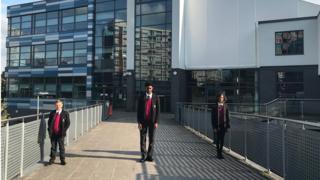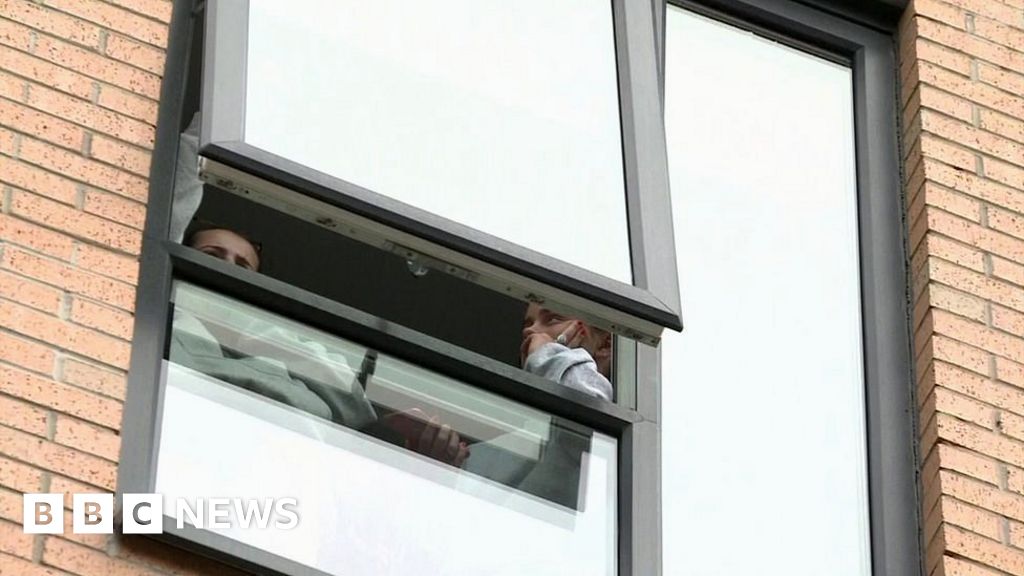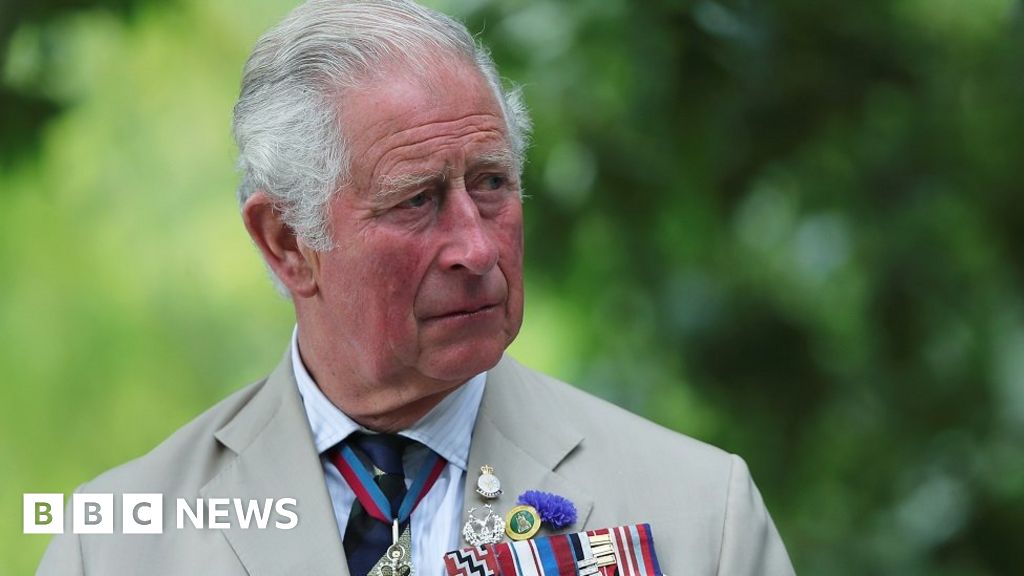 Image caption
Schools across Bristol will take part in the study
Image caption
Schools across Bristol will take part in the study
A major research project to track coronavius infections in schools and help head teachers prevent disruption is being piloted in Bristol.
The study aims to understand exactly how pupils transmit the virus, whether they are symptomatic of not.
The University of Bristol study will saliva test 4,000 pupils and 1,000 staff from schools across the city once a month for six months.
It should provide vital information on how schools should deal with outbreaks.
'Deep cleans'
It comes as some schools across the country have sent groups of pupils home to self-isolate after positive cases were found.
Some have had to close temporarily for deep cleaning in an attempt to manage the risks.
It is just a week or so since schools re-opened after a sixth month gap due to lockdown.
Experts say children are less susceptible to infection than adults, and their symptoms are generally milder.
But more data is needed to fully understand the role children play in transmitting the virus.
Prof Caroline Relton, an epidemiologist at University of Bristol, said researchers should be able to identify children with coronavirus, who do not show symptoms.
She said: "The main thrust of the study is to understand the rates of infections and to jump on them very quickly, so we're giving heads the tools to spot infections early and to keep their schools open, and so permit the continuity of education."
Image caption Prof Caroline Relton hopes the study will help minimise disruption to educationSchools and the NHS Test and Trace system will receive the data to help map infections in the city.
Researchers will also work with schools, looking at attendance data, seating plans and timetables to help them put appropriate measures in place.
St Mary Redcliffe and Temple School in Bristol, where all pupils returned last week, is one of the first schools to become involved in the study.
Pupil volunteers
Ripley in Year 10 is just starting her GCSEs and will be volunteering for a test.
"I want to take part in it because I think it would be really useful to get tested even if you don't have any of the symptoms, to be extra sure," she said.
Reuben, in Year 8, thinks pupils might be surprised by a positive test but it would be useful to know.
"The benefits are you know you can take precautions. You can quickly isolate and help others stay safe and keep yourself safe."
Elijah, in Year 11 will take his GCSEs next summer and is keen his year group faces the least disruption to their learning.
"We've had quite lot of months off school so keeping school open for our year right now is probably the best thing that can happen, so it will just mean a lot to everybody," he said.
Head teacher Elisabeth Gilpin said: "We were able to work with the scientists, to say: 'What do head teachers need to be able to keep their schools safe and to keep them open and to minimise the chance of closing?'
"So for us to get testing of a large percentage of the school population, even the asymptomatic people is just so exciting."
Image caption Head teacher Elisabeth Gilpin says is excited that the school is taking partStaff have also welcomed being part of the study.
Jean Miller a receptionist at the school is keen to take part: "I've got grandchildren and I had glandular fever twice so my immune system isn't quite what it is and to know we have got the testing and we're as safe as we can possibly be is massively reassuring."
A second study, by academics at Imperial College, will carry out at deeper investigation of a number of confirmed cases in schools.
They aim to identify whether both symptomatic and asymptomatic children transmit the virus as well as looking at possible means of transmission both at school and within households.
Both studies are funded by The National Institute for Health Research and UK Research and Innovation.

 5 years ago
1048
5 years ago
1048 
